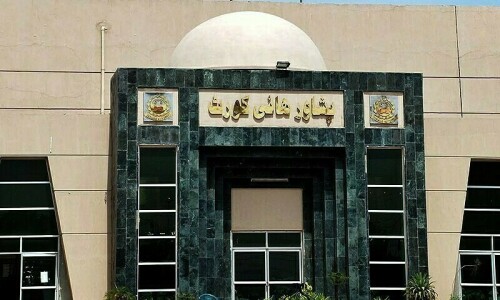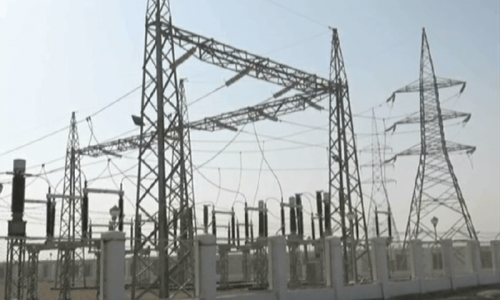PESHAWAR: Inspector General of Police, Khyber Pakhtunkhwa, Salahuddin Khan Mehsud has said the police department has offered the Pakistan Army to withdraw around two-thirds of its troops from Malakand division in the wake of the expansion of the force’s role in the previously troubled region.
“The police department can confidently meet security responsibilities in Malakand division in case of the army’s withdrawal (from the division), he told Dawn.
Mr Mehsud said the police were in a position to maintain law and order in urban centres of the province as the Pakistan Army’s troops would remain on guard in peripheries.
IGP claims his force can meet security responsibilities well in once restive division
“We are gradually expanding our role,” he said.
The police chief said if told, his force would confidently go into Fata as it was already working very closely with the Pakistan Army in KP.
He said the process to set up public safety bodies in the province under the KP Police Act, 2017, was in its final stages and that those bodies would become functional soon.
Mr Mehsud said the rules for the Provincial Public Safety and Police Complaints Commission and regional police complaint authorities to set up under the act had been forwarded to the Peshawar High Court for approval.
He said the police department would begin a campaign to create public awareness of those safety bodies, especially their role to keep watch on the police, after their formation.
“I will personally go to the people to let them know about the safety nets they [people] have against the police’s excesses,” he said, adding that the people needed to be taught about that.
The police chief said the new legislation had provided multiple bodies, which had powers to take action on the people’s complaints, while an inquiry under those bodies would be considered to be under the service rules.
He said after the establishment of public safety bodies, the police would not be able to hide their mistakes as those independent bodies had been tasked with supervising their activities.
“Once this system starts working, the number of complaints against the police will drop significantly,” he said.
Mr Mehsud said the police had also set up an internal accountability branch, which had so far punished 7,811 cops.
“A total of 987 police officials, including 13 officers, have been given the major punishment of discharge from service,” he said, adding that the police have also established a human rights vigilance cell headed by an additional inspector general level officer to monitor violation of human rights.
The police official denied that most of his force’s officials sacked on people’s complaints got their jobs back within months, insisting that all such officials were reinstated by the service tribunal.
He also said there were instances of the police department even approaching the apex court against the service tribunal’s decision.
Mr Mehsud also said the officials from junior ranks to DSP’s mostly dealt with the people and therefore, more junior officials were punished compared to senior ranks.
“The higher number of complaints against junior officials is proportional to their higher numbers vis-à-vis officers,” he said.
About the complaints of the police’s highhandedness during search and strike operations, Mr Mehsud said such operations were meant to deny bases to terrorists and therefore, they could not afford laxity in that respect.
“It is very difficult to balance public inconvenience and security measures against terrorism,” he said.
The police chief also rejected the impression that conviction in terrorism and other cases was very low, claiming the rate of conviction has instead gone up.
He said the police had arrested more than 1,200 terrorists and militants, while around 90 percent of them were still behind bars.
Mr Mehsud said historically, the conviction rate in cases of terrorism had gone up to 50 percent in KP as suggested by independent reports.
He said the police department was conducting workshops to improve investigations by its personnel, while a media campaign would be launched to increase the people’s awareness on the matters related to the police, especially on the registration of FIR.
The police chief also opposed the amendments to the KP Police Act saying such a move would do more harm than good.
He said the police were returning to their traditional role of ‘watch and ward’ while paying due attention to counterterrorism.
“We also want the people feel normal,” he said.
Mr Mehsud said there was no bases of Daesh terrorist group in KP and Fata and that the police had the capability to fight any terrorist network wanting to enter the province.
He said lawlessness in the neighbourhood definitely had its impact on KP and therefore, his department was alert to it and made plans accordingly.
Published in Dawn, November 8th, 2017














































